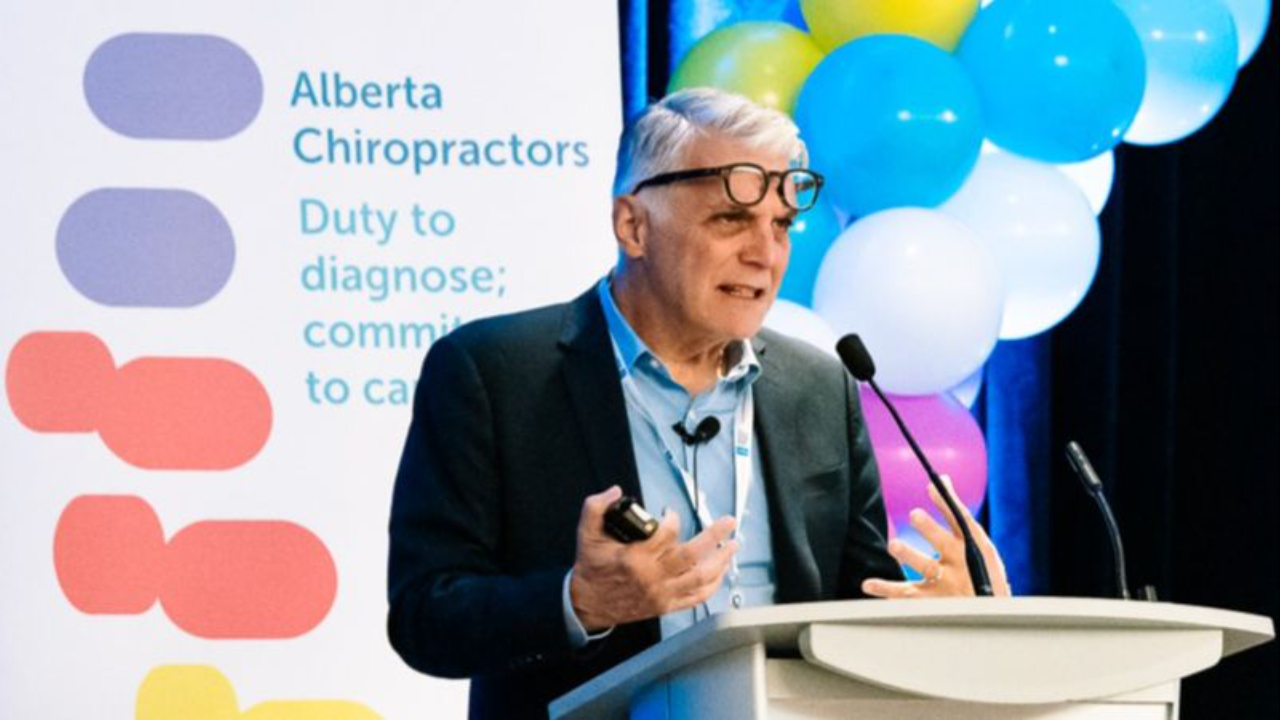
The spark that lit a movement: the story of CARL and the legacy of Dr. Greg Kawchuk
by Darlene Dickinson
At first, it was just a quiet nod across the room. Two researchers - strangers then - acknowledging one another at conferences and meetings where chiropractic science was still trying to find its global footing. One was an epidemiologist from Denmark. The other, a chiropractor from Canada. That silent greeting, exchanged more than 25 years ago, would eventually ignite a movement that helped reshape the chiropractic research landscape. It would also lead to one of the most inspiring collaborations in the profession’s history.
That simple beginning grew into a lasting friendship and professional partnership between Professors Jan Hartvigsen and Greg Kawchuk, one rooted in curiosity, innovation, and an unwavering commitment to building something that hadn’t existed in chiropractic before - a global leadership program for emerging researchers.
That program became CARL - the Chiropractic Academy for Research Leadership. Recently, CARL lost one of its founders and brightest lights, Dr. Greg Kawchuk.
But to understand CARL’s significance - and to truly grasp the depth of the loss felt by the global chiropractic community, you have to start at the beginning.
A meeting of minds
It began gradually. Two respected professors, Hartvigsen and Kawchuk, had worked together on smaller research projects and Dr. Kawchuk had visited the University of Southern Denmark a few times. In 2015, they formalized their collaboration when Dr. Kawchuk became an adjunct professor, where he would spend two months every year teaching, mentoring, and learning.
One theme kept resurfacing in their conversations - talent. Where to find it, how to cultivate it, and how to support those early in their research careers. Chiropractic is a young profession from an academic perspective, and it had no organized system for mentoring and elevating new leaders. The field needed something more.
Then came a serendipitous encounter - over beer, no less - with Professor Jon Adams, a like-minded scholar from Sydney, Australia. Adams spoke about the importance of early career research networks and how his own experience in such a program at Oxford University had shaped his career trajectory. That conversation sparked something electric.
The three realized what chiropractic was missing. Within months, they had created CARL.
A vision for the future
CARL was conceived not as just another academic program, but as a community. It became a support system, a think tank, a professional family for emerging chiropractic research leaders. Like the research and development arm of a forward-thinking company, CARL looks toward the future: the next questions to ask, the next evidence to uncover, the next generation to lead.
Through annual residentials, mentorship, and collaboration, CARL fellows are exposed to world-class guidance and given tools to accelerate their careers. Many have gone on to become leaders in their own right - publishing prolifically, influencing policy, and leading research that changes lives.
At the center of it all was Dr. Greg Kawchuk.
The heart and soul of CARL
“Greg Kawchuk was the glue in all of this,” says Hartvigsen. “He was charismatic and uniquely talented. When he came into a room, you immediately noticed him.”
Persuasive, passionate, and infectiously enthusiastic, Kawchuk had the rare ability to inspire people across generations. He wasn’t just a researcher, he was a storyteller, a mentor, and a beacon of creative energy.
With a background as both clinician and academic, Kawchuk had a deep understanding of the chiropractic profession’s challenges and opportunities. After 15 years in practice, he transitioned fully into research, eventually becoming the first Canada Research Chair in Spinal Function at the University of Alberta. His resume included over 150 peer-reviewed publications and leadership positions such as Chair of the World Federation of Chiropractic Research Council.
He explored everything from spine stiffness and non-invasive diagnostics to national mental health surveys and global back care pathways. Whether developing new technology like VibeDX or championing the GLA:DBack and SelfBACK programs in Canada, Kawchuk was always at the forefront.
He could also command a stage like no one else. With glasses perched above his eyebrows and boundless energy pulsing through every word, his conference talks became legendary. Other presenters dreaded following him - being “Kawchuked” became shorthand for having to present after a hard act to follow.
Beyond the data and the accolades, Greg Kawchuk was deeply human. He was a foodie and a pizza aficionado, learning the craft in Italy and delighting friends and colleagues with impromptu pizza nights. He loved music, dancing and photography, and took to the trails when he needed to think, often cycling his way through big questions and bigger ideas.
He brought people together. Whether it was students, colleagues, or strangers at a conference, Greg had a way of making people feel seen and heard. That’s what made him the perfect mentor and the heartbeat of CARL.
A legacy that lives on
The passing of Dr. Greg Kawchuk has left an irreplaceable void in the chiropractic community. But his work lives on through CARL and the countless researchers, students, and colleagues he inspired.
Hartvigsen and Adams are now leading the effort to expand and diversify CARL, ensuring it evolves to meet new challenges while staying true to the founding vision. “Greg built something that mattered,” says Hartvigsen. “CARL will change now that Greg is no longer with us. He is still the spirit of CARL, now it’s up to us to carry it forward.”
Because, if chiropractic had a rock star, it was Greg Kawchuk. And like any great artist, his influence endures - echoing in the work, the passion, and the leadership of the next generation. The Dr. Greg Kawchuk CARL Endowment Fund will provide lasting support for the CARL program, advancing international chiropractic research and leadership, while honouring Dr. Kawchuk’s legacy of innovation, collaboration and excellence.

